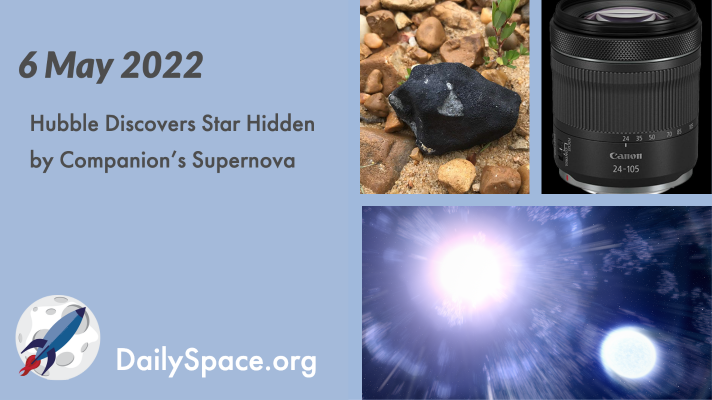
May 9, 2022 | Asteroids, Crewed Space, Daily Space, Exoplanets, Moon, Review, SpaceX, Stars, Supernovae, Titan
Data from the Hubble Space Telescope has determined that the newly discovered companion of a star that went supernova had its outer hydrogen layer siphoned off before the explosion. The results support the theory that massive stars generally form and evolve as binary systems. Plus, rocks from space, Crew-4 comes home, searching for life beyond Earth, and another Canon lens review.
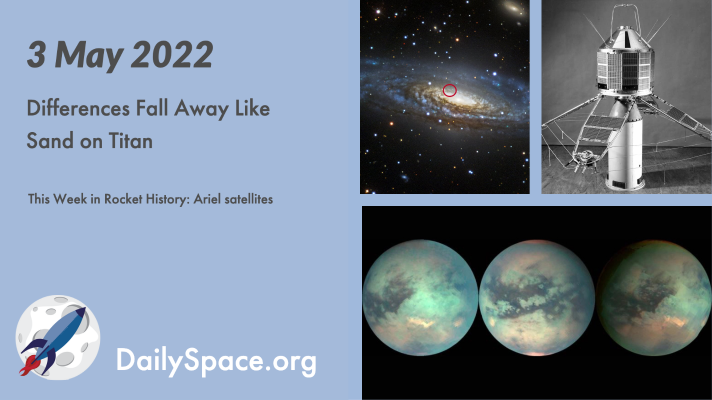
May 4, 2022 | Daily Space, Jupiter, Mars, Rocket Lab, Rockets, ROSCOSMOS, Space China, Space History, Spacecraft, SpaceX, Starlink, Supernovae, The Sun, Titan
Using spherical grains called ooids, found on Earth in shallow, tropical waters, scientists have found a possible mechanism for the formation of hydrocarbon sand on Titan. Plus, rocket launches, Jupiter and Mars, space explosions, and this week in rocket history, we look back at Britain’s Ariel satellite program.
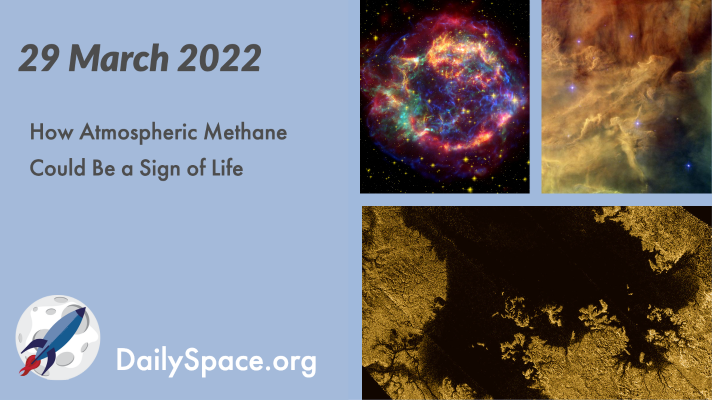
Mar 30, 2022 | Astrobiology, Cosmology, Daily Space, Earth, Galaxies, Mars, Planetary Nebulae, Rockets, Space China, Supernovae Remnants, Titan
Join us as we take a deep dive into the history of atmospheric methane on Mars and Titan, how that methane could be a sign of life, and what methane means for future missions and science. Plus, a planetary nebula, a supernova, ancient helium, and a couple of rockets.
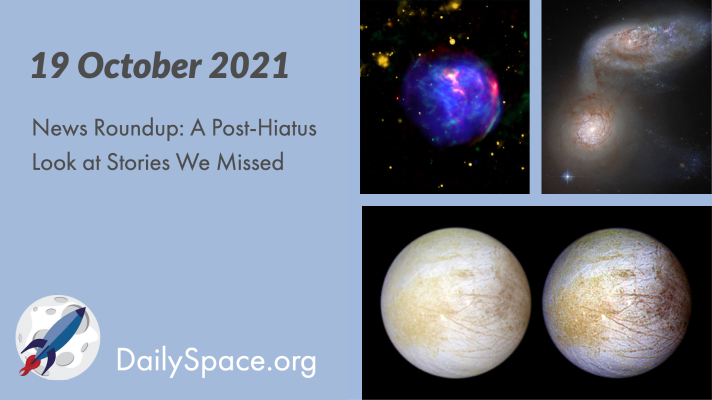
Oct 20, 2021 | Asteroids, Daily Space, Globular Cluster, Jupiter, Lucy, Our Solar System, Spacecraft, Supernovae, Titan
Today we whirl through some of the stories that happened last week while we were on hiatus, including pretty images of two galaxies merging and a lovely supernova, as well as news about moons Europa and Titan. Plus, we interview Dr. Julie Rathbun, a senior scientist at the Planetary Science Institute.
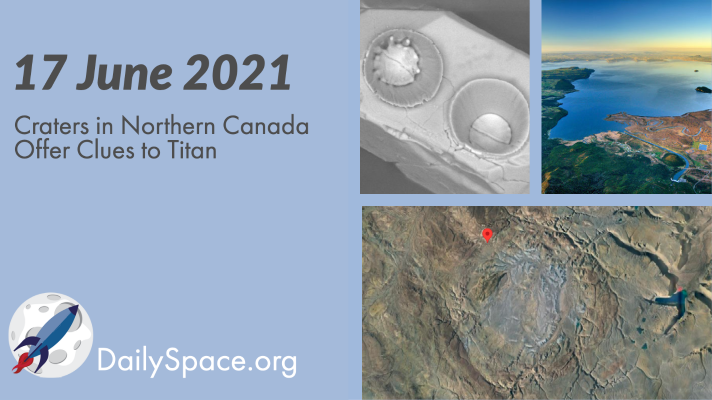
Jun 18, 2021 | Daily Space, Dark Matter, Earth, Galaxies, Milky Way, Stars, Titan
New research presented at the Workshop on Terrestrial Analogs for Planetary Exploration used the Haughton impact crater in Arctic Canada as a potential analog for impact craters on Titan, one of the targets of the upcoming Dragonfly mission. Plus, giant spinning structures, the slowing of the Milky Way, a blinking star, and volcanoes here on Earth.
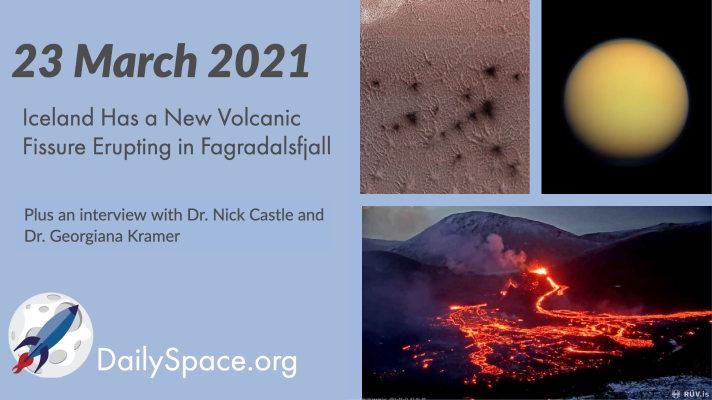
Mar 31, 2021 | Cassini, Climate Change, Daily Space, Earth, Guest Interview, Mars, Titan
After much “will it / won’t it” over the last few weeks in the wake of increased (and then decreased) seismic activity, an eruption in Iceland finally started with a brand new fissure near Fagradalsfjall. No lives are threatened, so Pamela is ecstatic. Plus, arctic methane, a new basalt type, spiders on Mars, Titan’s atmosphere, and an interview with PSI scientist Dr. Nick Castle about volcanoes








 We record most shows live, on Twitch. Follow us today to get alerts when we go live.
We record most shows live, on Twitch. Follow us today to get alerts when we go live.